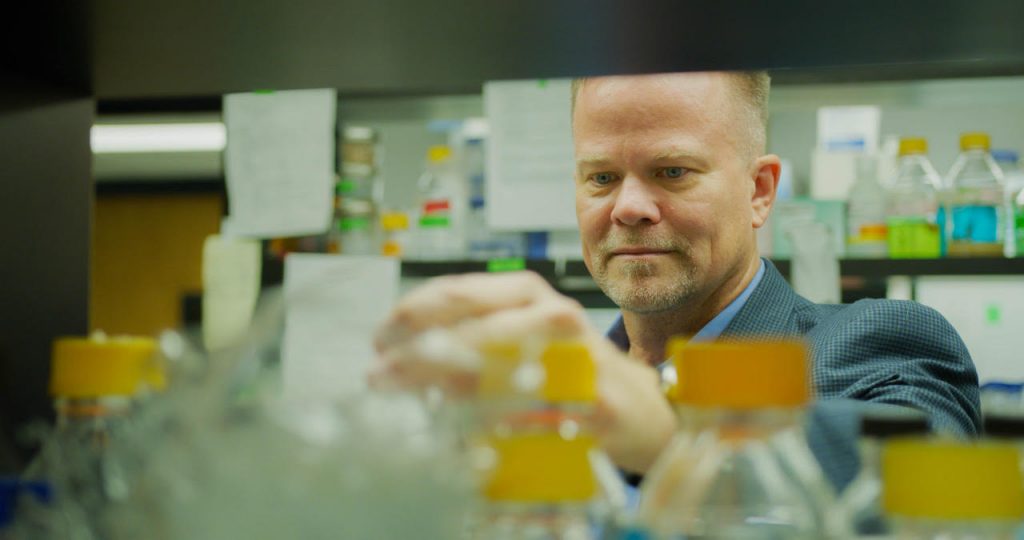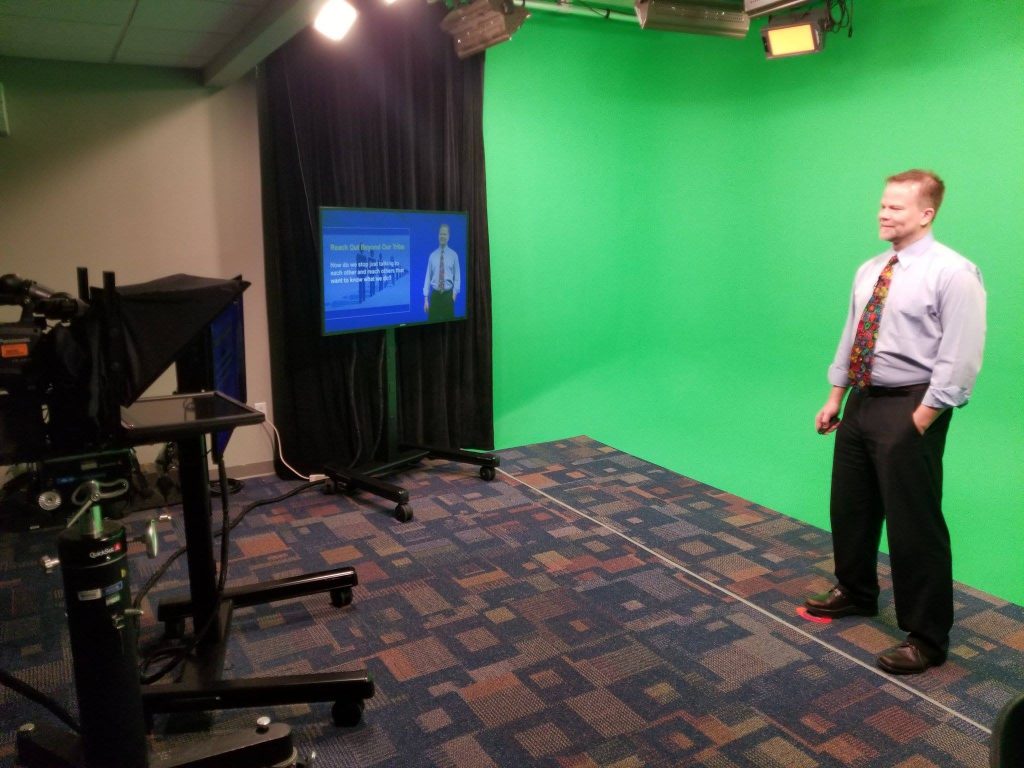This week we’re catching up with our 2016 Borlaug CAST Communication Award winner. Dr. Kevin Folta is a professor in the Horticultural Sciences Department at the University of Florida’s Institute of Food and Agricultural Sciences (UF/IFAS). A teacher, mentor, researcher, and organizer, Folta focuses on clear, credible information. He knows how to communicate science to non-scientific audiences—and how to train scientists, farmers, physicians, and students to perform public outreach in scientific or controversial topics.
Can you share a turning point or defining moment in your work as a scientist?
Strangely, it was when I became a Department Chair. I maintained a scientific program, but found tremendous satisfaction spending most of my time thinking about the careers of others. What can I do as a manager to ensure their successes? It was a turning point because I literally turned my attention outward, and performed the best experiment—trying to elevate high flyers, anticipating needs, removing obstacles, etc. I was heartbroken to leave that position.

What’s your most recent research?
We have an amazingly simple project that is raising eyebrows. I always wondered what would happen if we installed random DNA information in an organism, dropping a wild paragraph into the cell’s instruction manual. Most of the time it would encode a small protein that never existed in the universe and it would probably do nothing—or it might connect with biology in some way. We placed random information into thousands of plants and found new chemistries that block some responses to light, cause plants to flower early, or kill them shortly after germination. These findings may help define new environmentally safe herbicides or even new antibiotics. Currently we’re looking at small molecules that disrupt the association between SARS-CoV2 virus and its receptor on the cell and will continue to test for molecules to defeat bacteria like S. aureus, the causal bug for MRSA.
What made you decide to start Talking Biotech (podcast)? What do you enjoy most about it?
I always loved engaging the public about science and have formal communication training, and many prodded me to start a podcast. I didn’t have time. My professional duties called, reviewing books and manuscripts, or participating in university and national service. I didn’t always have time for those activities, so how could I justify hosting a podcast? I started Talking Biotech after being a guest on The Joe Rogan Experience in 2015. Joe talked me into it. Now we’re at almost 300 weekly episodes, 1.4 million downloads, which is incredible for a niche geeky science podcast. I look forward to it every week and love having guests from medicine or other areas outside of my immediate research, as I learn a lot and meet many outstanding diverse scientists.
How do you manage your time between speaking events, your research programs, and your podcast?
My management plan is simple—put out the hottest fire first. It is all about priorities and deadlines and I burn hot at least 18 hours a day, seven days a week. I also help my Type-A personality wife with her small farm and assist her in selling produce at farmers markets, and that takes time too but is a good mental break. I keep a grove of about 100 fruit trees and do a lot of grafting and crossing. In the lab I hire excellent scientists that are independent, and I meet with them often. The podcast is a late-night project. My university demanded no affiliation with it, so I have to do the interviews and production on my own time, not as part of university outreach. It’s really unfortunate because I’d love such an effective communication tool to be part of my formal extension efforts.
You’ve drawn criticism and a Google search shows negative information. How do you deal with that?
When your efforts to communicate science become visible and start making a difference you will draw the ire of those that reject it. We live in the Disinformation Age, and actively correcting false information is our duty as scientists, especially in a pandemic. A lot of folks don’t like that, and target you personally and professionally. Even others in science communication have been unfairly critical. Their goal is to destroy the trust we build when we communicate scientific information. When we are effective, it hurts their agenda. Unfortunately they play dirty and in the age of the internet career assassination efforts last a long time. The only way to counter it is to do good work, and more of it. Be a better teacher, better friend, better colleague, and contribute to the public understanding of science in big and visible ways. We have to define ourselves and not let the critics do it for us. That means dreaming big, elevating others, and being innovative, visible and transparent in all that you do.
How has the COVID-19 pandemic affected your work life?
The pandemic has ended travel to conferences, which is not so bad. I was doing 30+ dates a year out of town, and it gets to be a lot. I am finally running out of those little hotel soaps and shampoos. The pandemic has been positive in that I have more flexibility with my time. I can block off six hours working at home on a grant proposal or paper without interruption. It has made teaching very challenging, but the students are incredible, flexible, and roll with the changes better than faculty do. The hard part is not seeing my colleagues in the hall and working with my students one-on-one. I also always mentored undergraduate students in laboratory activities, which is completely off the table at this point. The big challenge is trying to figure out what I want the next phase of my career and research to look like post-pandemic. It is difficult to plan when so much is so uncertain.
What’s the best piece of advice you’ve received?
Dr. Andrew Hanson is a senior faculty member in my department that has been a great mentor. We get coffee and he keeps my head together. He once told me that we all have the same 24 hours in a day and that you just have to decide how to fill them; you can’t add time for something without removing time from something else. That’s the tip of the iceberg of his much-appreciated advice.
Stay up to date with what Dr. Folta is doing by viewing his websites www.talkingbiotechpodcast.com and www.kevinfolta.com, following him @KevinFolta on Twitter, and on Facebook.com/kmfolta.

Your donation to CAST helps support the CAST mission of communicating science to meet the challenge of producing enough food, fiber and fuel for a growing population. Every gift, no matter the size, is appreciated.